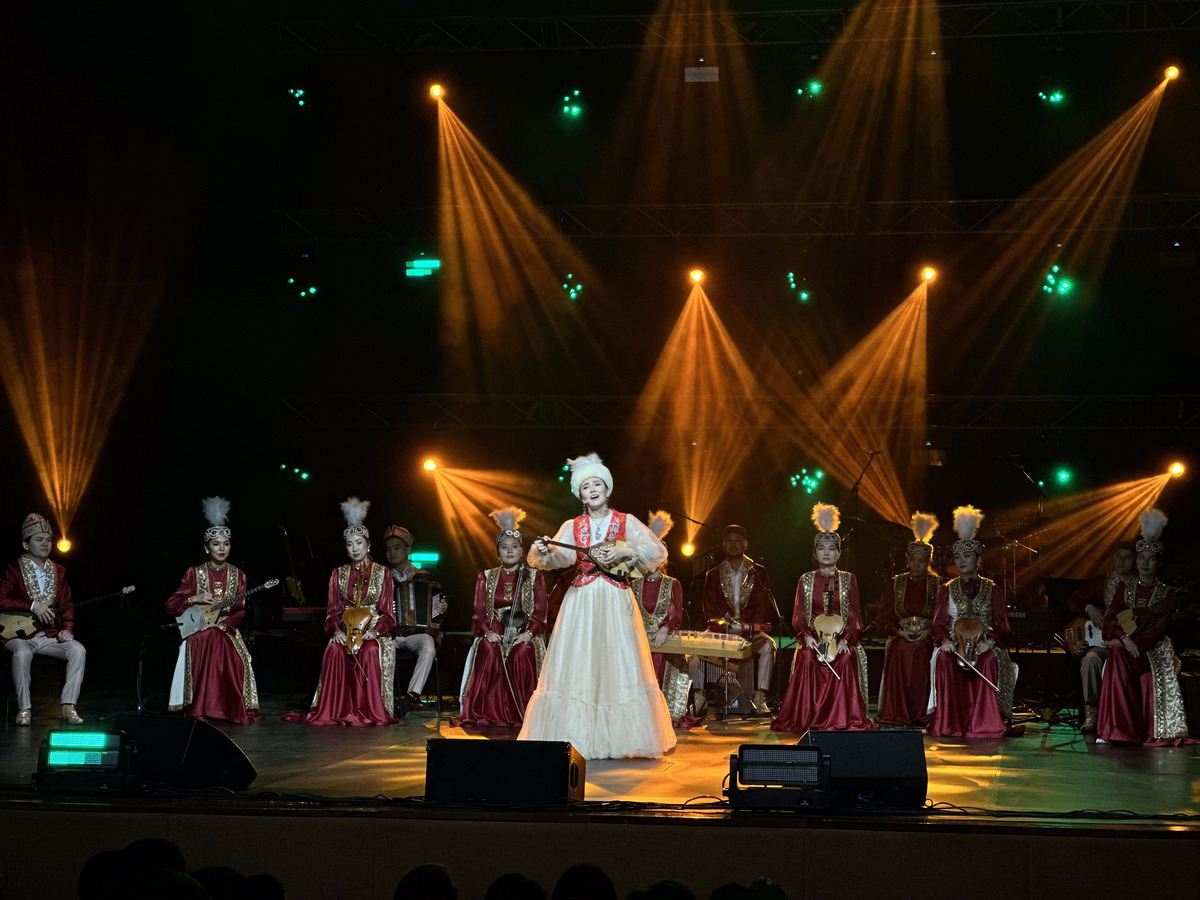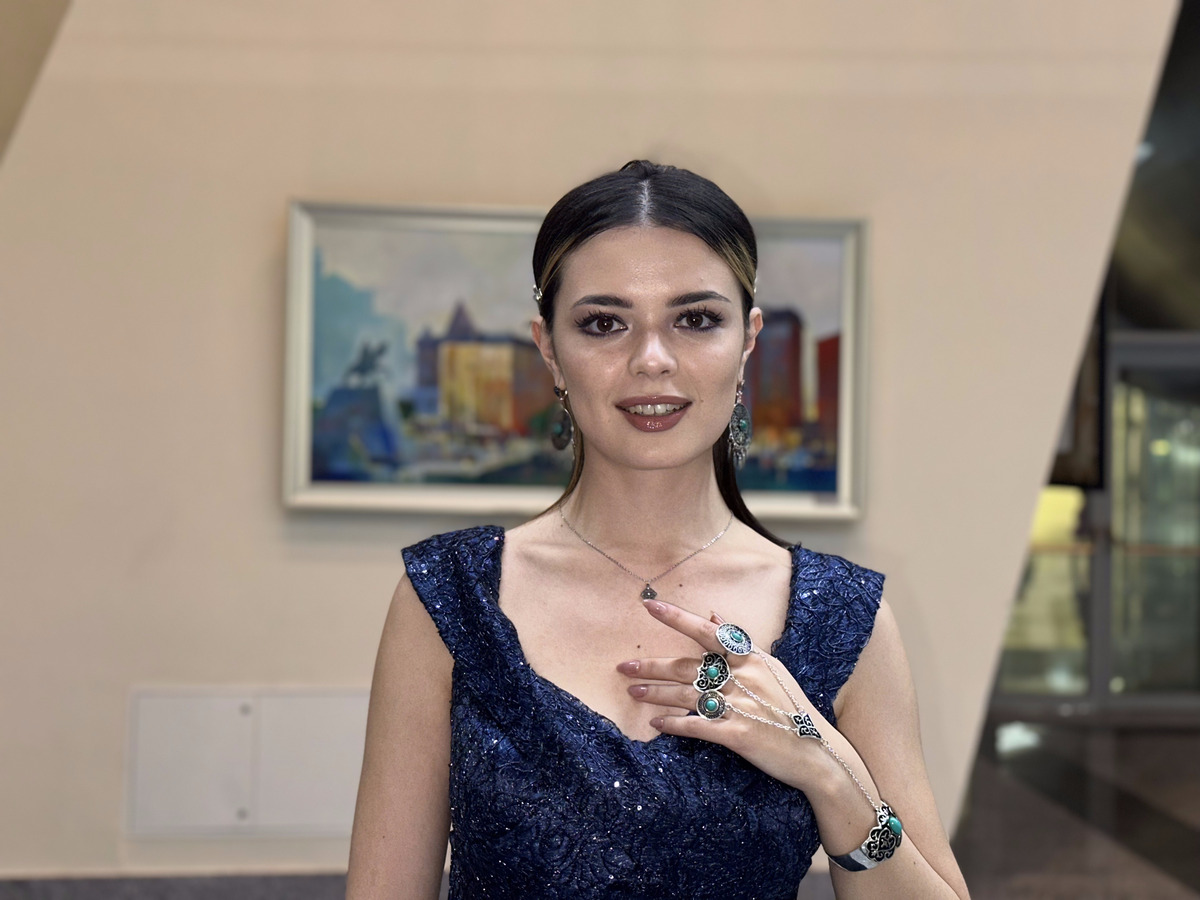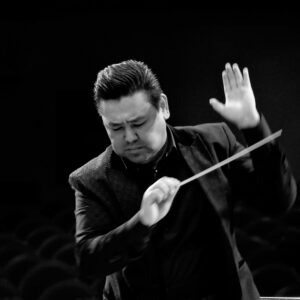ASTANA – Kazakhconcert, the state academic concert organization, launched its 64th concert season on Sept. 28 with an international vocal competition that showcased young vocal talents from Kazakhstan and abroad.

Kazakhconcert, the state academic concert organization, launched its 64th concert season on Sept. 28 Photo credit: The Astana Times
The competition aimed to popularize the legacy of the people’s Artist of Kazakhstan and the USSR, the legendary Roza Baglanova. It sought to revive and develop the best traditions of national and world culture and identify and support emerging vocal talents.
Participants between the ages of 18 and 35 submitted more than 50 applications, with 16 advancing to the second stage to perform before the jury.
Among the jury members was Zhanna Orynbassarova, a pop-jazz singer, Honored Artist of Kazakhstan, and a vocalist with Kazakhconcert.
Orynbassarova emphasized that the event’s primary goal is to discover new vocal talents and revive Baglanova’s beloved songs, encouraging younger generations to reinterpret and embrace them.
“This competition is about preserving a cultural legacy. We want to modernize these songs and make them popular again so they resonate with today’s youth. Our parents sang these songs, and now we hope the younger generation will embrace them as well,” Orynbassarova told The Astana Times.
Baglanova, a renowned pop and opera singer, became a national icon whose voice inspired countless listeners. In 2022, Kazakhstan celebrated her 100th anniversary, an occasion included in UNESCO’s list of anniversaries for 2022-2023.
“There are so many great Kazakh songs that have been forgotten. They carry strength, love, and the essence of the Kazakh spirit, and it is our duty to preserve and pass them on,” said Orynbassarova.
She also praised the competition’s international nature.
“We had performers from Kyrgyz Republic and Uzbekistan singing in Kazakh. When a song is good, it touches the heart, no matter the language,” she said.

Anna Uvarova, the first-place winner of the competition. Photo credit: The Astana Times
Orynbassarova was particularly impressed by contestant Anna Uvarova, who performed flawlessly in Kazakh without an accent.
“It was incredible—if you closed your eyes, you’d think it was a native Kazakh singer. The way she hit every note was simply stunning,” she said.
“This competition provides an opportunity for talented young people, even those in remote areas, to shine. We hope to make this an annual tradition, so more young artists can emerge, and these beautiful songs can become hits again,” she added.
Uvarova, who won first prize, praised the event’s organization and the talent level.
“I am fortunate to have listened to all the participants. It was fascinating to see the different approaches to arrangements, musical presentation, and technique,” she said.
Uvarova also shared her song choices, which included the well-known “Ainalayin” and “Inkarimai,” both offering a chance to bring technical and musical complexity to the performance.
“I love Kazakh poetic texts, even though I am a Russian speaker. The literary beauty of the Kazakh language shines through, especially in these songs,” she said.
The concert season also featured the Kazakh State Symphony Orchestra’s tribute dedicated to the 100th anniversary of Sydyk Mukhammedzhanov on Sept. 29.

Yerbolat Akhmedyarov, the Kazakh State Symphony Orchestra’s counductor and Honored Artist of Kazakhstan. Photo credit: Yelena Petrova
In an interview with The Astana Times, the orchestra’s conductor and Honored Artist of Kazakhstan, Yerbolat Akhmedyarov commended Mukhammedzhanov’s contributions to Kazakh music.
“Mukhammedzhanov, one of Kazakhstan’s earliest professional composers whose compositions distinctly express national color, especially through the incorporation of the dombra’s sound. His orchestration skills were exceptional, in his symphonic works, for instance, when violas and cellos play together, they create a timbral mix that resembles the sound of the kobyz,” he said.
Akhmedyarov noted Mukhammedzhanov’s pioneering work in soundtrack music, drawing heavily on ancient folk melodies. Despite many of his compositions being lost, the orchestra managed to reconstruct his symphony “Burya” (Storm) for the performance.
“Performing Soviet-era compositions today requires careful explanation of their context and inspiration. It is not always easy, but it is essential to keep this cultural legacy alive,” said Akhmedyarov.
